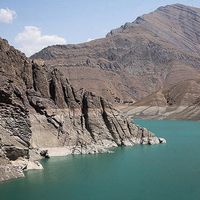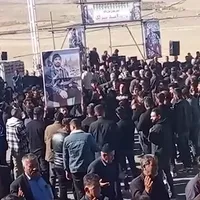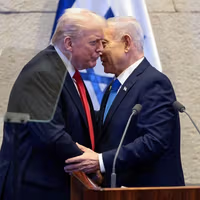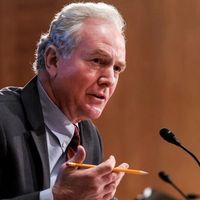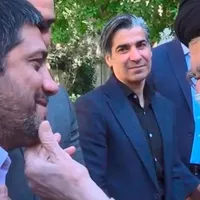“The issue of nuclear weapons generally involves three components: production, stockpiling, and use or deployment,” the newspaper wrote—drawing a distinction that is rarely considered meaningful in academic or military discussions on nuclear strategy. The article went on to assert, “In the modern era, the possession of nuclear weapons—rather than their use—is inherently deterrent in nature.”
It appears that the government’s official newspaper is suggesting that producing and stockpiling atomic bombs is not a big issue as long as Iran says it has a fatwa prohibiting their use.
Iranian diplomats and officials often refer to a statement made by Khamenei in 2010 against weapons of mass destruction, calling their use “haram” or forbidden in Islam. They insist that this constitutes a fatwa, a religious ruling by a senior Shi’ite cleric that has the power of law.
However, Khamenei’s statement was submitted to a disarmament conference, and delivered in the tone of a political address, rather than as a formal religious ruling. It was neither published on Khamenei’s official website as a fatwa nor reiterated by him in subsequent speeches. Even if interpreted as a binding religious edict, a fatwa can be superseded by a new ruling, especially under the principle of expediency—a concept frequently invoked in Shi’ite jurisprudence to adapt religious rulings to changing political and strategic circumstances.
The newspaper argues that the Supreme Leader’s fatwa does not prohibit the production or stockpiling of nuclear weapons, which it claims serve purely as a deterrent, but only bans their use.
“If we consider the two reasons cited above for the prohibition of nuclear weapons,” the article states, “it becomes clear that they apply to their use—not their production or storage. The primary objective of developing such weapons is, fundamentally, deterrence.”
The two reasons referenced by Iran daily include a historical account from early Islam prohibiting the poisoning of water, and broad religious teachings said to be emphasizing the preservation of human life, civilians, and the environment.
This also suggests that the Islamic Republic’s stance on nuclear weapons is shaped more by interpretations of early Islamic teachings and the principles of Shi’ite clerical jurisprudence than by universal norms aimed at preventing mass destruction and civilian casualties.


